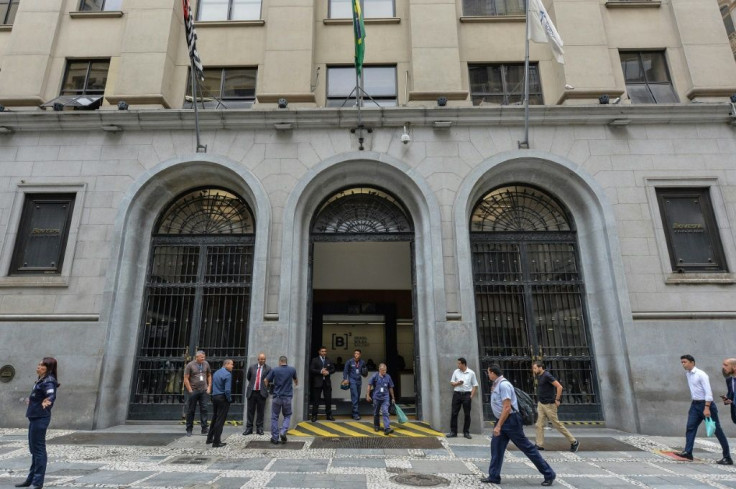Sao Paulo Exchange Plummets More Than 12%

Brazil's Sao Paulo exchange plummeted more than 12 percent Monday as global markets recoiled from the coronavirus epidemic and a deep plunge in oil prices.
The Ibovespa index, which had fallen by 4 percent on Friday, dropped more than 10 percent in early trading, forcing a temporary suspension.
Trading was suspended for 30 minutes after the sudden plunge triggered automatic circuit breakers, and stocks stabilized briefly following the resumption before slipping again to close at over 12 percent down.
Shares of state-controlled oil giant Petrobras lost about 30 percent after global oil prices crashed in the biggest drop since the 1991 Gulf War. Domestic airlines Gol and Azul dropped 17 percent.
The Brazilian real continued to lose ground against the dollar, closing at 4.73, a two percent decrease compared to Friday.
Meanwhile, Chile's peso closed at an all-time low of 842 against the dollar. The Santiago stock exchange also fell 4.58 percent to 4,035.54 points by the end of trading.
Chile's losses were exacerbated by a drop in the price of copper -- of which the country is the world's biggest producer -- to $2.48 per pound on the London Metal Exchange, its lowest in two years.
Continuing the global trend, the Buenos Aires stock exchange opened down by more than 9.0 percent, before closing the day down by 13.75 percent. Argentina on Saturday recorded the first death from the coronavirus in Latin America.
It was a similar story in Mexico, where the stock exchange suffered its worst single day crash since 2008 and the peso dropped to a three-year low against the dollar at close.
The stock exchange plunged 6.42 percent to close at 38,730.56 points.
The peso depreciated by 4.83 percent at close compared to Friday, dropping to 21.17 according to the central bank.
Brazilian president Jair Bolsonaro on Monday minimized the risk of the coronavirus, which has killed nearly 4,000 people in more than 60 countries.
"In my opinion, that virus's destructive power is overstated. Maybe it is even potentially being exaggerated for political reasons," he said to a crowd of Brazilian supporters in Miami, where he is visiting in an effort to drum up foreign investment.
Official figures released last week showed the Brazilian economy slowed in President Jair Bolsonaro's first year in office.
"The scenario will remain volatile. Every day it's more difficult to foresee market behavior, with risks everywhere. The coronavirus is advancing in the West, we already have bad news on the Brazilian economy and we are beginning to see the impact on Western economies," said analyst Henrique Esteter of Guide investment consultants.
Brazil's economy grew 1.1 percent in 2019, down from 1.3 percent in each of the previous two years, the national statistics institute, IBGE, reported.
Growth for the fourth quarter came in at 0.5 percent.
When Bolsonaro took office, analysts forecast economic growth of around 2.5 percent for the year.
© Copyright AFP 2024. All rights reserved.





















